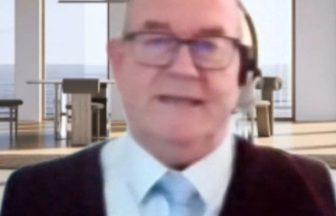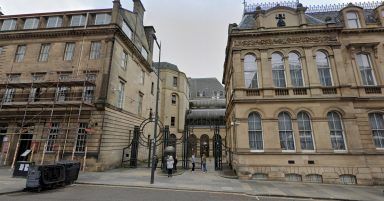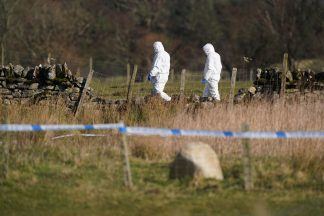An independent report says Falkirk councillors have been failing to take tough decisions and are using vital reserves rather than making changes.
The council’s chief executive and senior officers will be told in a soon-to-be-published report by a public spending watchdog that they need to lead the transformation more effectively.
Audit Scotland’s Best Value report warns councillors that more hard decisions are on the way as they must address a £70m funding shortfall in the next five years.
It makes clear that elected members must work together – and with officers – more effectively to change how services are delivered.
The report, written after extensive interviews conducted remotely with staff and elected members, will be presented to the Accounts Commission on Thursday via livestream.
However, until that process is finished the report is not regarded as complete and the final version and its recommendations will not be published until January at the earliest.
But the unpublished report makes clear that key decisions have been delayed as the politicians fail to work together: in particular, the plan to build a new council headquarters has been discussed since 2014, while a review of the council’s property has been ongoing since 2016.
Councillors will also be told that they need better financial planning to give detail on how to bridge a projected £70m funding gap over the next five years.
Using reserves, as they have done in recent years, is “not sustainable”.
However, not all of the blame lies with councillors.
The report also finds that members were not being given enough information to help them make difficult decisions.
And the council was also criticised for not giving residents enough information on how it is performing.
But the auditors also highlight where the council has performed well, with areas such as housing and education being picked out.
And there is particularly strong praise for the excellent work done in response to the pandemic.
Council leader Cecil Meiklejohn was delighted to see this acknowledgement, adding she’s not “overly concerned” by the criticism, as many of the issues it raises are already being tackled, she believes.
She said: “The whole country is facing financial challenges, so that’s not something we are an outlier in, but we do have to address that and we will work hard to do so.
“We already have an improvement plan in place so I’m not overly concerned by the report that has come before us.
“In a way it’s been helpful to allow us to reflect on where we are but I’m confident we’ll find a good, positive way forward.”
Chief executive, Kenneth Lawrie, says the report emphasises that “we’ve got a lot of work to do and a lot of progress to make”.
A relative newcomer to the council, more than half of his short tenure has been during the Covid-19 pandemic, and as they emerge from its shadow, he wants staff to be ready to “step on the accelerator”.
He added: “I’m confident we’ve got the abilities and the people to do that but it’s a big challenge and we need to be up for it.”
He agrees that much of what the auditors want to see is already happening.
Projects they are criticised in the report for delaying, such as a major transformation of how the grounds and roads teams work, have now been approved.
A lack of community consultation was also picked up, but the auditors are now watching as the Community Choices scheme is rolled out, giving local people more of a say in how some council cash is spent.
The report makes clear that the financial challenges facing all councils are not going to go away and there are still difficult decisions ahead.
In particular, there is a warning about the decision to bring the Community Trust back in-house – losing £1m a year in rates relief in the process – saying there will have to be a reduction in staffing costs to make it work.
Mr Lawrie said they always knew this would be a challenge, but members had taken the view that bringing all the decision-making together under the council was the right way forward.
He said: “We’re very aware of the challenges there but it’s about integrating these services into the trust and then taking joined-up decisions about the future of services which was more difficult when they were separate entities.”
Cllr Meiklejohn added: “The aim would remain to reduce our staff through voluntary severance and we do know that there are a number of people within the trust who wish to go and the trust weren’t able to facilitate that.
“So, with the restructure and looking at the management of parts of the trust and integrating it into the council there are opportunities there that should not impact on the service that we continue to deliver through the leisure trust at this moment in time.”
Mr Lawrie knows it will take time to convince Audit Scotland that the changes they have made are significant and long-lasting.
For him, transforming council services is the only way to minimise more painful service cuts that will otherwise happen.
“This is why the recent decisions we’ve taken are fundamental and the report is right in saying we need to do more,” he said.
The report will be discussed by the Accounts Commission online from 9.30am on Thursday. Join the live stream here.
By local democracy reporter Kirsty Paterson
Follow STV News on WhatsApp
Scan the QR code on your mobile device for all the latest news from around the country


 iStock
iStock

























